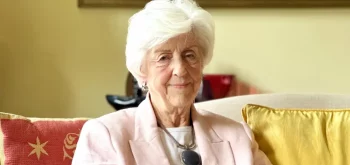The Government has apologised to rape victims for ‘systemic failings’ in the aftermath of a long-awaited review.
The Lord Chancellor, Robert Buckland, said that victims of rape had been ‘denied the justice they deserve as a result of systemic failings’ and promised overhaul and ‘real improvements’ in the handling of rape cases.
The End-to-End Rape Review Report, which was published after a two-year wait, revealed wide-ranging reasons behind the fall in cases reaching court. These reasons include delays in the investigation process, a lack of consistent support for victims, and an increase in invasive requests for victims’ personal data. The report states that rape prosecutions have fallen by 62%, and convictions have fallen by 47%, in the time period between 2016 and 2020.
The Government has announced their action plan to increase the number of cases reaching court without, they say, compromising the defendants’ right to a fair trial. The action plan aims to return the volume of rape cases going through the courts to 2016 levels, and includes plans for better technology to reduce the time that victims are left without their phones. The Government will also test a new entitlement, at the police investigation stage, for victims of rape to challenge the scope of information requests.
Leading women’s groups have expressed disappointment, saying that current plans lack urgency and key equalities issues remain unaddressed. The End Violence Against Women Coalition (EVAW) said the review’s recommendations did not go far enough to tackle an ‘urgent justice crisis’ to the extent that is needed.
Last year, it was reported in The Justice Gap that only one in seven rape victims believed they would get justice by reporting their assault to the police. In January this year, a coalition of women’s groups launched a legal challenge of the Crown Prosecution Service’s policy on decision-making in rape cases, arguing that the change had led to ‘the effective decriminalisation of rape’.
The Director of the End Violence Against Women Coalition, Andrea Simon, said: ‘There is clearly a desire to fix the justice system for rape survivors, but there is a distinct lack of urgency, measures which reflect the ambition needed, and resourcing of plans to make this a fully-fledged reality.’
‘Failings in the criminal justice system have grievously impacted rape victims and survivors over many years and continue to impact those coming forward to the police every day. To rebuild the public confidence that has been so deeply damaged by the collapse in rape prosecutions, we urgently need to start seeing improvements, and investments in levelling up across the whole justice system.’







